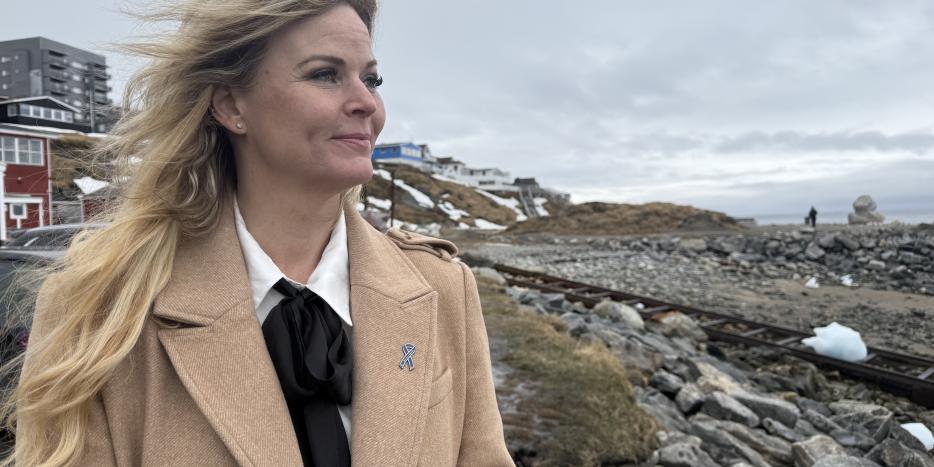Anna Louisannguaq Frederiksen is still struggling with deep scars from her time as a reserve officer. Now there is help available for officers like her from the organization Thin Blue Line, which has just opened a branch in Nuuk.
Former reserve officer Anna Louisannguaq Frederiksen clearly remembers the first signs that something was not as it should be.
– The first thing I noticed was sleep problems. Despite being tired and having been in bed for 14 to 15 hours, I could only sleep for four hours at most, she says.
Twice in one year she was called off sick due to stress. Her experience is not unique in the police and correctional services, where many struggle with mental health issues after service.
A study from Vive (2019) shows that officers in the police and the Norwegian Prison and Probation Service are exposed to many violent incidents, and that many experience stress reactions such as PTSD, depression, anxiety and stress.
Among police officers, 14.6 percent respond that they often or all the time feel stressed. 9.5 percent meet the diagnostic criteria for PTSD. Among officers in the Danish Prison and Probation Service, 33.3 percent feel often or all the time stressed. 24.3 percent meet the diagnostic criteria for PTSD.
Now the organization Thin Blue Line Denmark has established a branch in Nuuk to support officers like Anna Louisannguaq Frederiksen.
A full backpack
– We can see that there are many who have filled their backpacks very well during the years they have worked in the police, and we really want to help them, says director of Thin Blue Line Denmark, Stinne Ølshøj.
The organization offers both social and professional support services to people who have been or are employed in the police and correctional services, and their relatives.
Networking activities are intended to bring former and current police officers together in a safe environment, while therapy sessions allow for deeper processing of psychological stress.
Stinne Ølshøj is aware that conditions in Greenland differ in several ways from Denmark. She herself points out some of the special conditions.
– Many officers respond to situations where they are people they know – friends, neighbors, maybe family. That adds an extra layer of complexity, she says.
The organization is aware that they are facing a different task, where their support must be adapted to the Greenlandic conditions, she says.
The traces do not disappear by themselves
After her sick leave, Anna Louisannguaq Frederiksen has made great progress. But such experiences can leave lasting traces.
– It’s not like everything gets resolved just because you’ve talked to a psychologist. It could be that you’ve been exposed to something for many years and there are still traces of it, she says.
Anna Louisannguaq Frederiksen hopes that Thin Blue Line can help address the deeper imprints of her experiences.
– Their support for me has just begun, but maybe they can help me on a deeper level, she says.
